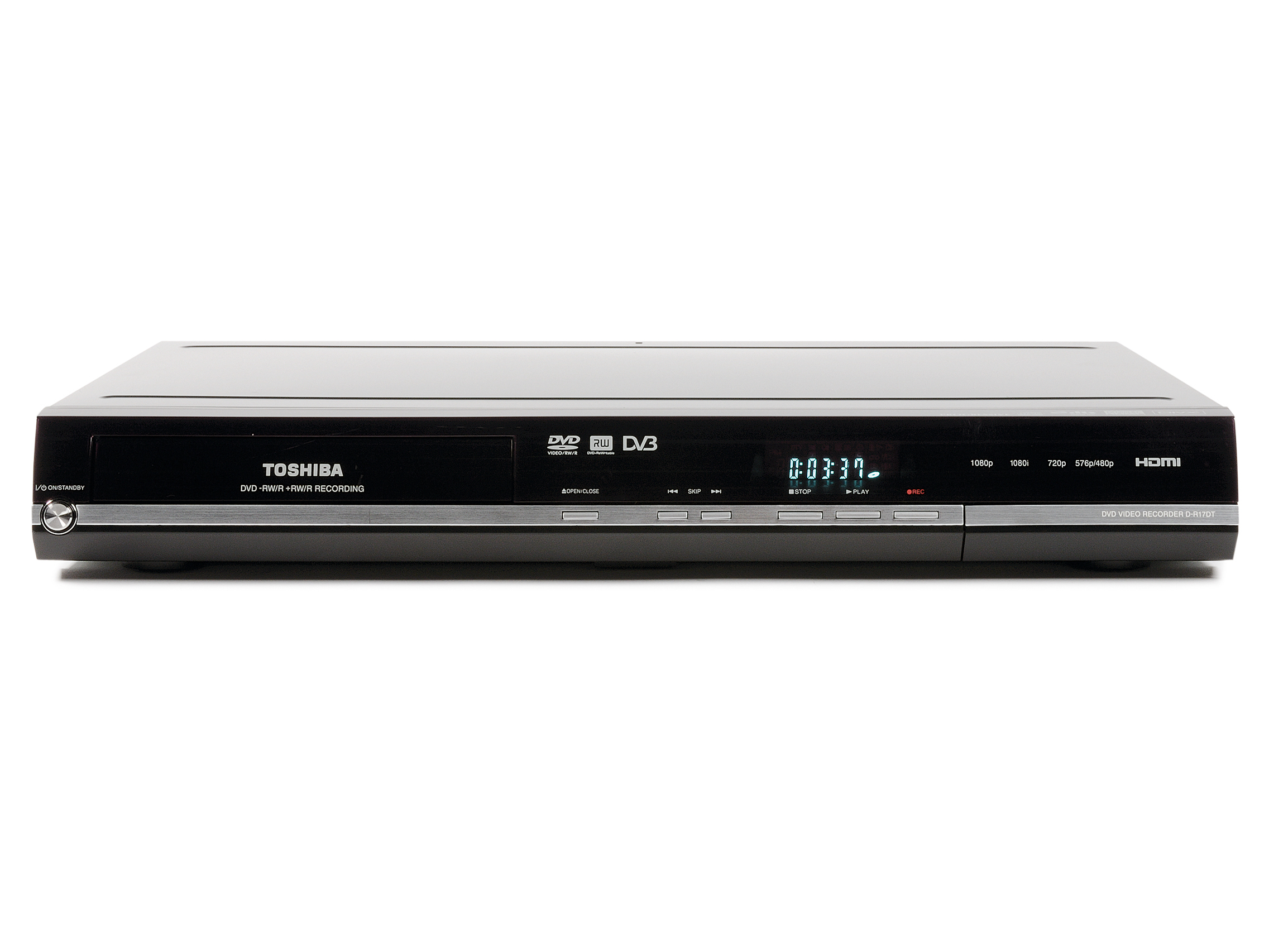TechRadar Verdict
Flawed Freeview functionality aside, this is a decent recorder at a good price, with 1080p upscaling as an added bonus
Pros
- +
Picture quality
1080p upscaling
Cons
- -
Slow to change channels
Poor EPG
No RGB input or i.Link
Why you can trust TechRadar
As standalone DVD recorders go, the D-R17DT boasts a fairly impressive feature list, including 1080p, 1080i and 720p upscaling plus a built-in Freeview tuner - great value for money for £200.
Taking centre stage around the back is the HDMI, which is joined by component video and two Scarts, one of which offers RGB output. On the audio side, you'll find electrical digital and stereo outputs.
The D-R17DT records onto DVD-R, DVD-RW, DVD+R and DVD+RW discs, but not double layer DVD-R or DVD+R. There are five recording modes (XP, SP, LP, EP and SLP) which enable you to record between one and eight hours of material.
When using a DVD-RW disc, you either format it in Video or VR mode - choose the latter and you can take advantage of the deck's Playlist function, which enables you to arrange titles into a sequence without affecting the original recordings.
Among the other editing features are Scene Delete, which allows you to remove unwanted chunks of your recordings, plus you can add chapter marks, combine/divide chapters and rename titles. These editing functions are well signposted by the menu system and prove very easy to use.
The D-R17DT's menus are generally attractive and logically structured. The Disc Menu, for example, features moving thumbnails, while the Setup menu lists all the key options in a clear manner. However, the Electronic Programme Guide is a major let-down, eschewing the intuitive grid structure in favour of an unhelpful and unattractive list format.
The remote sports a lot of similar-looking buttons, but its intelligent design stops it being a big problem. The digital tuner is slow to react when changing channels, but MHEG digital text is slick.
XP mode recordings from the built-in tuner (onto DVD-RW) are every bit as crisp and vibrant as you'd expect from a 'best-quality' mode, particularly with the upscaling set to 1080p. The deck makes mincemeat of a tricky football broadcast on ITV1, capturing rapid movement with very little sign of noise.
SP reveals only a slight increase in noise but it's hardly noticeable. It's only when you reach LP that the picture starts to look a bit hazy, with details hard to see from a distance.
EP and SLP recordings are typically scruffy and soft, but far from unwatchable. In fact, as far as low bitrate modes go they're pretty impressive as long as you stick to undemanding daytime material.
A blast of Spider-Man 2 reveals this to be a very competent DVD player. The opening scene where Spidey delivers pizzas through the bustling New York streets looks sensational - the yellow taxis are bright and vivid, and the deck's excellent upscaling makes detail look sharp and forceful whether it's set to 720p, 1080i or 1080p. The upscaling circuitry also adequately sharpens up Freeview pictures for playback on flatpanel TVs.
The deck was quite picky with our test discs containing a selection of media files. Some it played with the minimum of fuss, such as a CD-R containing DiVX files or a mixture of MP3 files and JPEGs. But it flat-out refused to play other DVD-R and CD-Rs containing the same file types.
It's fair to say that audio playback isn't this deck's priority, but it turns in a pleasant performance with stereo CDs nonetheless and provides superb 5.1-channel movie sound when piped to a decent amplifier and speakers.
Overall the D-R17DT is a solid recorder with great recording quality, though sluggish channel changing and an unimaginative EPG let the side down.
Tech.co.uk was the former name of TechRadar.com. Its staff were at the forefront of the digital publishing revolution, and spearheaded the move to bring consumer technology journalism to its natural home – online. Many of the current TechRadar staff started life a Tech.co.uk staff writer, covering everything from the emerging smartphone market to the evolving market of personal computers. Think of it as the building blocks of the TechRadar you love today.
